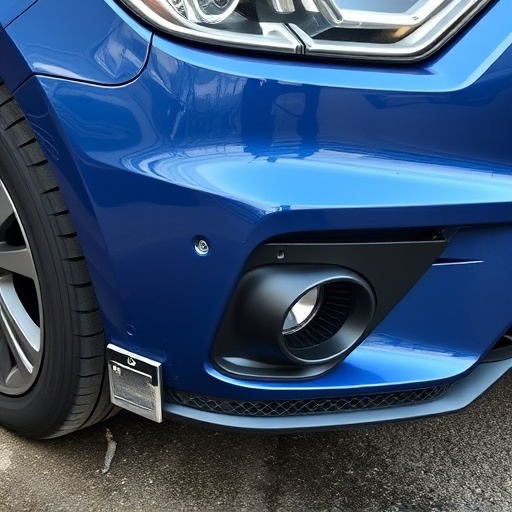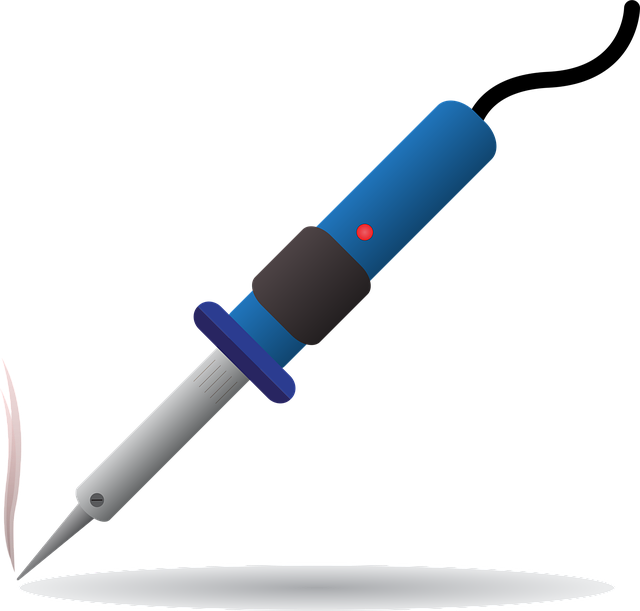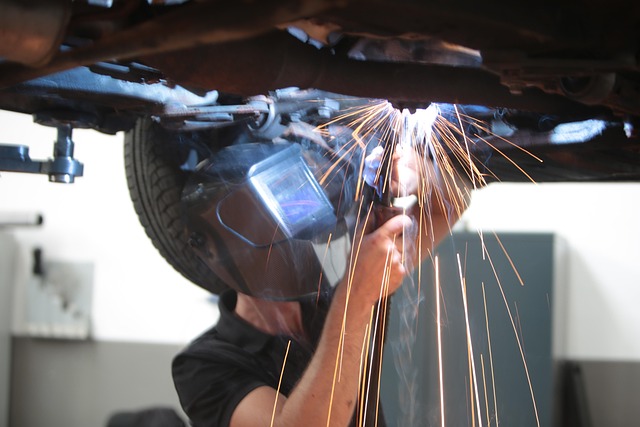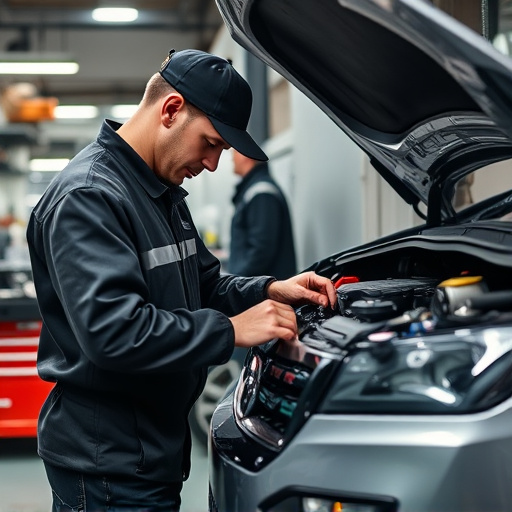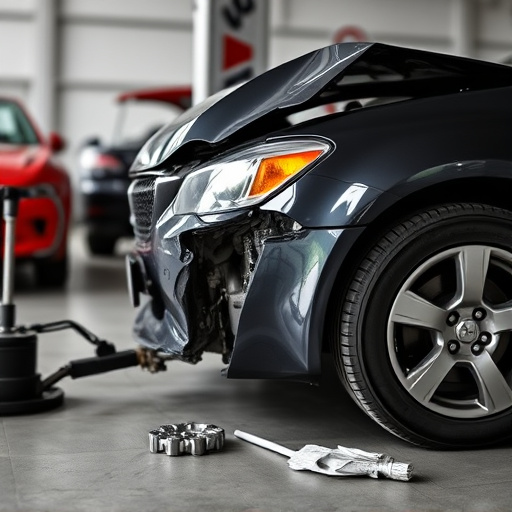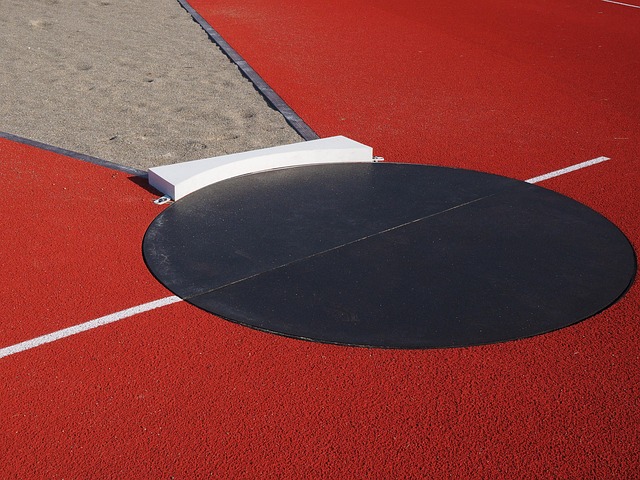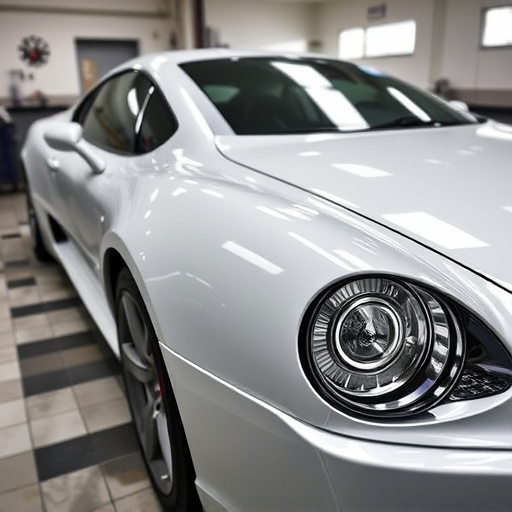Obtaining a frame repair certification is a critical step for automotive technicians aiming to specialize in vehicle bodywork restoration. This process involves meeting industry standards and regulatory requirements through theoretical assessments, practical skill demonstrations, and hands-on experience. Structured pathways include auto body schools, on-the-job training, and continuous education to ensure certified professionals stay updated with modern repair techniques and safety protocols.
Looking to elevate your auto tech career? Consider a journey into frame repair certification. This article guides experienced technicians through the pathways to achieving this specialized skill set. We’ll explore the certification requirements, outline comprehensive guide steps for success, and provide insights on earning and maintaining your frame repair certification. Discover how mastering this art can open doors to in-demand roles and enhanced job satisfaction.
- Understanding Frame Repair Certification Requirements
- Pathways for Experienced Technicians: A Comprehensive Guide
- Earning and Maintaining Your Frame Repair Certification
Understanding Frame Repair Certification Requirements
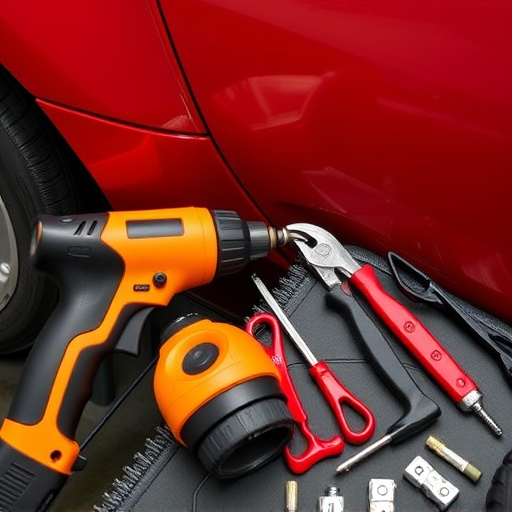
Obtaining a frame repair certification is a significant step for experienced technicians looking to specialize in this critical aspect of automotive restoration. The process involves understanding and meeting specific requirements set by industry standards and regulatory bodies. These criteria ensure that certified professionals possess the knowledge and skills necessary to handle complex vehicle bodywork, especially after accidents or structural damage.
Frame repair certification requirements often include a combination of theoretical knowledge assessments, practical skill demonstrations, and hands-on experience in a controlled environment. Technicians must demonstrate proficiency in various techniques, such as alignment, welding, and straightening metal, while adhering to safety protocols common in auto collision centers. The certification pathways typically provide a structured learning curve, allowing experienced techs to transition smoothly into this specialized field, ultimately enhancing their career prospects within the vehicle bodywork industry.
Pathways for Experienced Technicians: A Comprehensive Guide
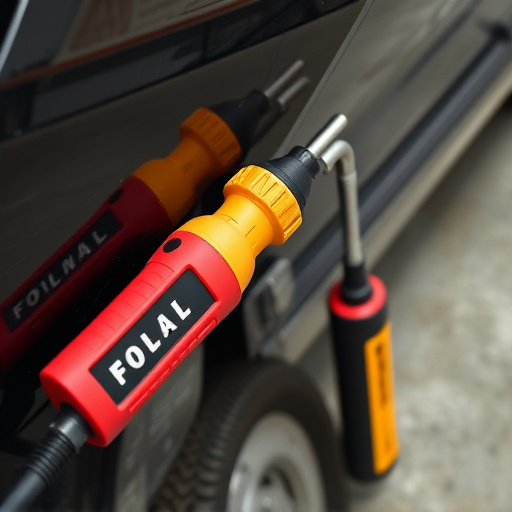
Experienced technicians looking to enhance their skills and advance their careers in the automotive industry have several comprehensive pathways to consider when pursuing frame repair certification. These programs cater to a wide range of technical backgrounds, offering specialized training that aligns with the evolving demands of modern vehicle repair. One of the primary routes involves enrolling in recognized auto body schools or technical institutes that offer intensive courses focused exclusively on frame repair and restoration.
These institutions provide hands-on training using state-of-the-art equipment and facilities, enabling students to master techniques for straightening bent frames, aligning components, and ensuring structural integrity. Upon completion, technicians can expect to be well-prepared for industry-recognized certifications, such as those offered by leading automotive organizations. Additionally, many employers value practical experience, allowing seasoned professionals to gain certification through on-the-job training programs that pair theoretical knowledge with real-world applications in auto glass replacement and comprehensive auto body services.
Earning and Maintaining Your Frame Repair Certification
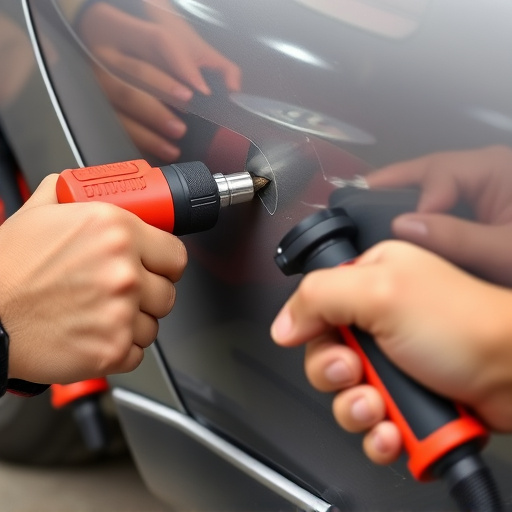
Earning a frame repair certification is a significant step for experienced technicians looking to enhance their skills and advance their careers in the automotive industry. This specialized training equips professionals with the knowledge and practical techniques required to handle complex vehicle body structure repairs, ensuring safety and structural integrity. Many reputable institutions and organizations offer certification programs tailored to the needs of seasoned techs.
To maintain your frame repair certification, ongoing education is key. The automotive industry is constantly evolving, with new technologies and methods emerging in collision repair services and vehicle body shops. Staying abreast of these developments ensures that your skills remain up-to-date and relevant. Regular workshops, seminars, and online courses can help experienced techs refresh their knowledge, learn about advancements in scratch repair techniques, and stay connected with industry best practices.
For experienced technicians looking to enhance their skills, pursuing a frame repair certification is a strategic move. By understanding the requirements and exploring tailored pathways, you can efficiently navigate this specialized path. The benefits of certification include increased job security, improved reputation, and enhanced earning potential in the dynamic world of automotive repair. Embrace the process, stay committed to ongoing learning, and watch your career take flight with newfound expertise in frame repair.
